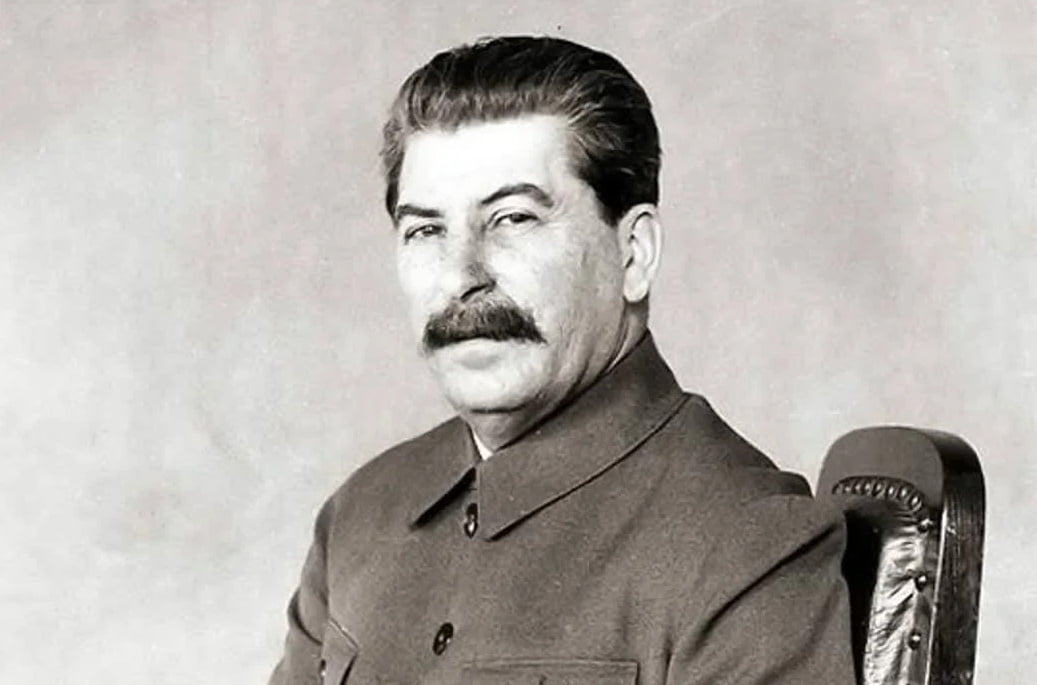The famous phrase attributed to the leader of the peoples has long become a symbol of Stalin’s repressions. We checked whether Stalin actually said it.
This short saying, which hides a rather cynical principle, is very popular both in the media and in literature - fiction and journalistic. The aphorism is quoted by people of various political views, and very often its author was called Joseph Stalin. This is what the President of the Czech Republic did Milos Zeman, leader of the Liberal Democratic Party Vladimir Zhirinovsky, deputy of the Verkhovna Rada of Ukraine Andrey Shkil, journalists Radio Liberty, "Gazeta.ru» (repeatedly), Secretary of the Union of Journalists of Russia Igor Yakovenko, blogger for the BBC Russian Service Yuri Smirnov. Even Vladimir Putin, commenting on the events in South Ossetia in 2008, named what happened was the embodiment of “the famous Stalinist principle “No man, no problem”.” Of course, the statement ended up in all sorts of collections of quotes.
However, even a cursory search for this phrase in Soviet-era sources will bring the inquisitive reader rather meager results. It is simply not available in publications available online before 1988. In the indicated year, she simultaneously appears in the historical and journalistic publication “The lessons are bitter, but necessary.", magazine "Ogonyok"and the famous novel by Anatoly Rybakov "Children of Arbat" Moreover, in the first case it is noted that this supposedly Stalinist phrase “was passed on from mouth to mouth in the 50s.” In 1989, a quote called "Stalin's philosophy" sounded at the First Congress of People's Deputies of the USSR from the lips of actor Sos Sargsyan. That same year she entered book Fedor Burlatsky “New thinking: dialogues and judgments about the technological revolution and our reforms.” There are no other appearances of variations of this phrase, even without mentioning Joseph Vissarionovich, in pre-war literature.
But there is a phrase in the 16th volume of the collected works of J.V. Stalin, published in 1997. There a transcript of the leader’s conversation with A. M. Lavrov and A. M. Dzhuga, which took place in August 1950, is given. “One unmarked bomber from Albanian territory - and there is no palace, no American-British agent Tito. If there is a person, there is a problem, if there is no person, there is no problem,” says in this conversation... not Stalin, but his interlocutor, a certain Dzhuga. The following is a link to the book by V. Zhukhrai “Stalin. Truth and Lies", published in 1996. Apparently, the title corresponds to the content of the book, since even the figure Juga himself turned out to be a fictional figure. There is no other evidence that such a conversation took place at all.
And here’s what the quote looks like in the above “Children of Arbat":
“Berezin well remembered the words spoken to him by Stalin in 1918 in Tsaritsyn. Stalin demanded the execution of several military specialists from the former officers of the tsarist army. Berezin, then the head of the special department, argued to him that the charges were unconvincing and the execution would cause many complications and problems. To this Stalin instructively replied:
— Death solves all problems. No person, no problem.
And Stalin turned out to be right. A telegram arrived to cancel the execution, but people had already been shot. There were no problems."
Anatoly Rybakov began working on “Children of the Arbat” back in 1965 (according to other sources, in the late 1950s). The novel was completely completed only in 1982, and published in the magazine “Friendship of Peoples” five years later, when the era of glasnost arrived. And this was immediately followed by numerous appearances of our phrase in other sources. Thus, there are serious reasons to believe that it was in Rybakov’s novel that Stalin’s quote appeared for the first time.
And indeed, years later the author himself confirmed this. That's what he is writes in the autobiographical work “Novel-Memoir,” published in 1997:
“Perhaps I heard it from someone, perhaps I came up with it myself. So what? Did Stalin act differently? Did you convince your opponents? No, he exterminated them... “No man, no problem...” This was Stalin’s principle. I just formulated it briefly. This is the artist's right."
And in 2000, when Anatoly Naumovich was no longer alive, “Swan” was published in the almanac article Valeria Lebedev “If Gorbachev had been more decisive.” In it, the author quotes a fragment from his conversation with Rybakov, which took place on July 16, 1995:
“In one of my articles, which he especially liked, I reproduced Stalin’s famous aphorism: “If there is a person, there is a problem. If there is no person, there is no problem!” Anatoly Naumovich glared: where did Stalin say this? In which of your works? Or in a note? Or in what speech?
I thought about it. He answered like this: knowing a little about Stalin’s psychology, I assume and am even sure that he never publicly spoke these exact words. And I didn’t write. He was a great actor in politics and would not allow himself to reveal his essence. He could allow himself such frankness only in a very narrow circle of his “comrades-in-arms,” or rather, lackeys. Where did I read this? Yes, it's kind of vague. Hangs in the air. Many places. In memoirs... In journalism. This phrase has become a kind of cliche to denote that era.
- So you don’t remember exactly where?
- Exactly - no.
“So that’s it,” cried Anatoly Naumovich with youthful liveliness, “I came up with it myself!” For the first time in "Children of the Arbat" Stalin utters this phrase. I composed it and put it in Stalin’s mouth! I wrote this novel 20 years before its publication in 1987. And from there she went for a walk, and no one remembers where she came from. I, I am the author of this aphorism. And no one remembers or knows...
There was undisguised bitterness in the last words. I stood up and shook his hand.
- Anatoly Naumovich! — I said with genuine excitement and even pathos. - If so, then allow me to congratulate you and express my admiration. For in a few words you managed to amazingly accurately convey the whole essence of the Stalinist approach to people. His psychology. You know, this is better than Freud with his reservations. And the fact that no one remembers is even better. Consequently, the phrase became a popular proverb. You have created a truly folk work. You know, like a folk song. Or an epic.
- Do you really think so?
- Absolutely. The highest recognition for a creator is when his name is forgotten, but his work is remembered; it becomes nameless, but popular.
- Well, you calmed me down. And I... was worried, you know. This phrase is everywhere - and there is never any reference. And so do you.”
As we see, Anatoly Naumovich Rybakov not only admitted that he was the author of the catchphrase, but was also annoyed when it was attributed to the Soviet leader - a real one, not a book one.
Incorrect quote attribution
Read on topic:
1. Rybakov A. N. Novel-memoir. – M.: Vagrius, 1997
2. Valery Lebedev. If Gorbachev had been more decisive
If you find a spelling or grammatical error, please let us know by highlighting the error text and clicking Ctrl+Enter.







